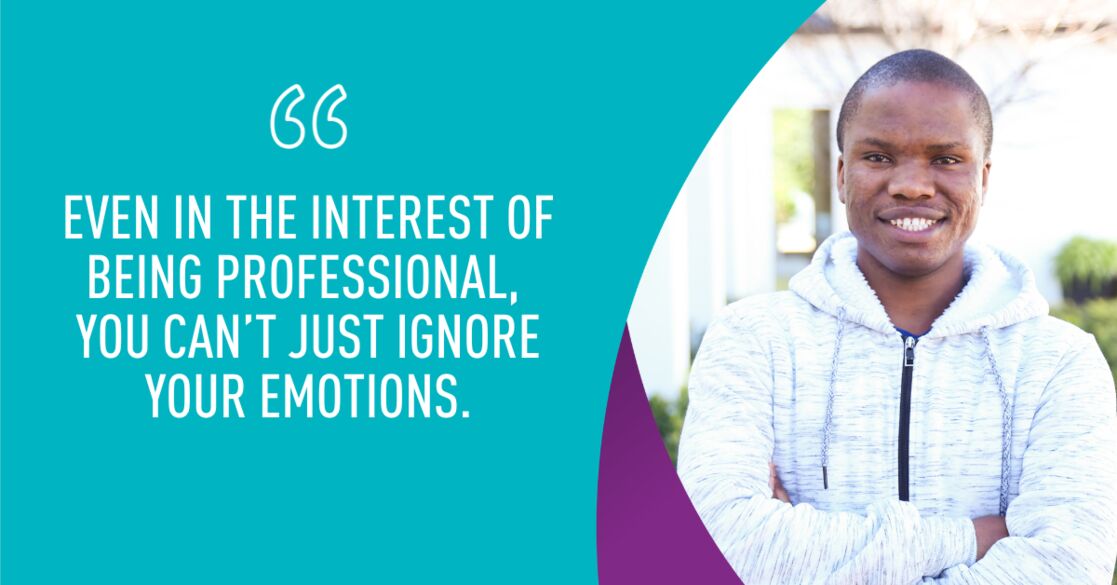Preparing for the world of work is not simple. Not only do upcoming graduates need to complete their university exams and learn more about the industry they’re aiming to join, but there are a host of additional skills they need to consider to become well-rounded job candidates.
Dell Young Leaders alum Yonela, who is an audiologist, shares more on emotional intelligence in the workplace, and advice on what university students can do now to begin to develop this important skill.
What does emotional intelligence mean to you?
To me, it is being aware of my emotions and managing them. One example of emotional intelligence is self-awareness. When you are having a conversation with someone, or you are in a larger team setting, someone could say something that triggers you. Emotional intelligence is taking stock of why it triggers that emotion in you and being able to manage your response in that moment. Especially if it’s in a working environment, being able to maintain that professionality without being too emotional is important.
Why do you think emotional intelligence is important in the workplace?
The reality is that people will say things that impact you, or say things that are closer to home for you – whether they are aware of it or not. Being able to manage yourself is important because it impacts the relationships that you have. If you are a person that always responds emotionally, that will likely create strain on your relationships.
In my line of work in healthcare, you need to be able to deal with people because that’s what the job requires. Before you get to work with patients, you need to work in a team of people – your superiors, your peers, professionals from other practice areas – so maintaining relationships is important. With patients, you want to show empathy and understand where they are coming from, but you must keep your professionalism so you can’t be too emotional.
How do you manage difficult emotions?
Emotional intelligence is about dealing with your own emotions. Even in the interest of being professional, you can’t just ignore your emotions. Managing your emotions still means dealing with them with different strategies – be it reflecting, journaling, or another technique that helps you manage those emotions so they don’t build up. If not, eventually you will burst.
What advice do you have for students looking to build their emotional intelligence whilst at university?
For students, it’s important to use the university environment in a way that simulates the working environment. In this way, by the time they get to the workplace, students have lots of practical experience building their emotional intelligence. When I was at university, I knew some skills like being self-aware, being able to manage your own emotions, being empathetic, and being able to manage relationships. I knew all of those things individually, but I didn’t know that all of them together constituted emotional intelligence.
As a university student, you have a great opportunity to practice emotional intelligence through group work. These experiences are meant to prepare you for how things are going to be in the workplace, so view the university environment as practice for the future. Reflect on your experience and ask yourself some questions to develop strategies for success.
Ask yourself:
- How do you handle yourself or address issues when they arise in teams?
- What strategies help stop you from getting carried away by your emotions?
- What impact does my communication style have on my teammates?
This preparation will ultimately help you forge strong relationships and set you up with a foundation for career success.
The Career Insights Series is designed to help graduate job seekers. Dell Young Leaders alumni share insights on their career path, highlight a day in their life at their employer, and provide guidance to students on how to stand out to employers and prepare for the world of work.

